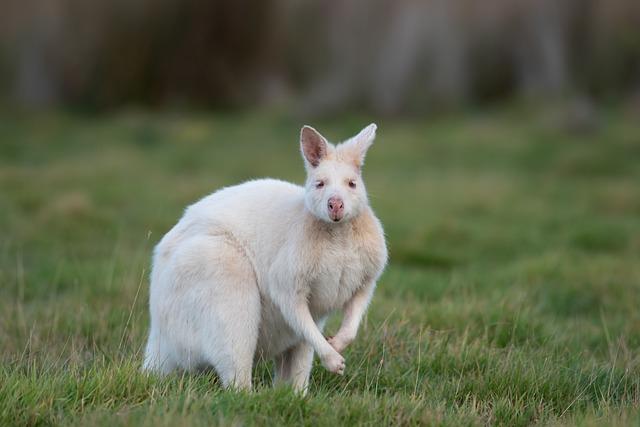The Role of Genetics in Shaping Your Pet’s Behavior
Understanding the quirks and behaviors of our beloved pets can often feel like unraveling a delightful mystery. Why does your dog have an insatiable urge to dig, or why does your cat exhibit such a strong hunting instinct? While environment and training undeniably play significant roles, the key to these behavioral puzzles often lies in the realm of genetics. Just as our genes influence our personalities and predispositions, the genetic makeup of our pets significantly shapes their behavior. In this article, we will embark on a fascinating journey into the world of animal genetics, exploring how inherited traits contribute to the unique behaviors of our furry companions. Whether you’re a seasoned pet owner or a curious animal enthusiast, understanding the genetic underpinnings of pet behavior can enhance your bond with your pet and offer insights into their intriguing world.
Understanding the Genetic Blueprint: How DNA Influences Your Pets Temperament
Every pet owner has observed unique traits in their furry companions, from the boundless energy of a Labrador Retriever to the independent nature of a Persian cat. At the core of these behaviors lies the intricate tapestry of DNA, a genetic code that holds the secrets to their temperament. While environment and upbringing play significant roles, genetics provide the foundational blueprint that influences a pet’s personality. By understanding the hereditary factors, pet owners can better comprehend why their pets act the way they do.
Genetics determine a range of behavioral traits, including:
- Activity Levels: Some breeds are naturally more energetic due to genetic predispositions.
- Social Interactions: The inclination towards friendliness or aloofness can be traced back to ancestral traits.
- Anxiety and Stress Responses: Certain genetic markers are linked to how pets cope with stress and unfamiliar situations.
- Trainability: The ease with which a pet learns commands and routines is often rooted in their genetic makeup.
By appreciating these genetic influences, owners can tailor their training and care approaches, fostering a harmonious relationship with their pets.

Decoding Breed-Specific Behaviors: Insights into Your Pets Unique Traits
When it comes to understanding your pet’s behavior, genetics plays a pivotal role in determining the traits and instincts that make your furry friend unique. Each breed carries a genetic blueprint that influences their natural inclinations and predispositions. For instance, herding breeds like Border Collies are innately driven to gather and protect, while retrievers possess an almost instinctual urge to fetch and carry objects. Recognizing these inherent traits can help you tailor your training and interaction to better suit your pet’s needs and natural tendencies.
Consider the following genetic influences on behavior:
- Temperament: Some breeds are naturally more sociable, while others may be reserved or independent.
- Energy Levels: High-energy breeds often require more physical activity and mental stimulation.
- Trainability: Certain breeds may learn commands quickly due to their genetic predisposition towards intelligence and focus.
- Instinctual Drives: Hunting, herding, or guarding behaviors can be prominent in specific breeds.
By decoding these breed-specific behaviors, you can gain deeper insights into your pet’s unique traits, allowing for a more harmonious relationship and a fulfilling life for both you and your companion.

The Science of Inherited Behaviors: What to Expect from Your Furry Friend
Understanding the intricacies of your pet’s behavior can often feel like unraveling a genetic mystery. While environment and training play pivotal roles, it’s the genetic blueprint that lays the foundation for many of your furry friend’s instincts and quirks. The science of inherited behaviors reveals that certain traits are passed down through generations, shaping how pets interact with the world around them.
- Breed-Specific Traits: Each breed comes with its own set of predisposed behaviors. For instance, Border Collies are known for their herding instincts, while Labradors often exhibit a love for water and retrieving.
- Temperament: Genetics can influence a pet’s baseline temperament, such as their level of sociability, aggression, or anxiety. This means some pets might naturally be more outgoing or reserved.
- Natural Instincts: Behaviors like digging, hunting, or vocalizing can be linked to the survival instincts embedded in their DNA.
By acknowledging these inherited behaviors, pet owners can better understand and nurture their pets, aligning training and care with their natural predispositions. Recognizing the role of genetics not only enriches the bond with your pet but also enhances their overall well-being.

Tailoring Training and Care: Personalized Tips Based on Genetic Predispositions
Understanding your pet’s genetic background can be a game-changer when it comes to customizing their training and care. By recognizing the unique traits and tendencies that may be inherited, you can create a nurturing environment that caters specifically to their needs. For instance, a Border Collie might have a natural inclination for herding due to its genetic makeup, which means engaging them in activities that stimulate their mind and body can help prevent restlessness. On the other hand, a Basset Hound might have a strong scent-driven nature, so incorporating scent games into their routine can be both fulfilling and calming.
- High-Energy Breeds: Incorporate agility training or long walks to channel their energy positively.
- Scent-Driven Dogs: Engage them in scent-based games to satisfy their hunting instincts.
- Social Breeds: Facilitate regular playdates or visits to dog parks to meet their social needs.
- Independent Cats: Provide solo play options like interactive toys that cater to their curiosity.
- Vocal Breeds: Train with positive reinforcement to manage excessive barking effectively.
By tailoring your approach to training and care, you not only enhance your pet’s quality of life but also strengthen the bond you share. Recognizing and respecting their genetic predispositions allows you to address behavioral challenges proactively, making for a happier, more harmonious home.